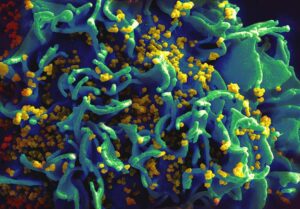Bisphenol A (BPA), a chemical that leaches into food from plastic packaging and metal cans, can significantly reduce insulin sensitivity according to experts. The chemical, which is pervasive in our food supply, may be a contributor to rising rates of type 2 diabetes.
Insulin, another hormone, binds to the same fat cells. When BPA drives fat cell dysfunction, it also reduces the body’s ability to respond to insulin. In short, BPA causes insulin resistance and high blood sugar, a signature cause and feature of type 2 diabetes.
Unpublished data presented at the 2024 American Diabetes Association’s Scientific Sessions conference has shown that BPA consumption triggers insulin resistance directly and rapidly. While many previous studies have found a correlation between BPA levels, insulin sensitivity, and type 2 diabetes, this was the first randomized controlled trial to study the chemical’s immediate effects in humans, says Todd Hagobian, PhD, a professor of kinesiology at California Polytechnic State University in San Luis Obispo.
The study, which had yet to be peer-reviewed at the time of the conference, evaluated BPA consumption in 40 healthy young adults. Every day, each of these volunteers ate a vanilla cookie. Half of the cookies were sprinkled with the maximum “safe” amount of BPA, as determined by the United States Environmental Protection Agency (EPA). The volunteers otherwise ate a balanced diet for seven days.
At the beginning and end of the weeklong session, all volunteers submitted to a glucose clamp test, a complex technique that is the gold standard for measuring insulin resistance. This test measures how much glucose is required to keep blood sugar levels steady at a healthy level. The participants who consumed BPA experienced “about a 9 percent decrease in peripheral insulin sensitivity,” says Dr. Hagobian.
The result may confirm what many researchers have long suspected. Many larger observational studies across the world have found significant correlations between BPA levels and markers of insulin resistance or type 2 diabetes:
- Women with a higher concentration of BPA in their urine have higher fasting blood glucose and more insulin resistance.
- Adults with more BPA in their blood have more insulin resistance, more inflammation, and a higher biological age.
- Women with a higher exposure to BPA are more likely to report that they have type 2 diabetes.
Peripheral insulin resistance, which refers especially to insulin signaling dysfunction in the skeletal muscle, is also associated with accelerated aging and Alzheimer’s disease.
Hagobian says that BPA exposure is unlikely to play as large a role as some of the major risk factors for type 2 diabetes, particularly obesity, genetics, lack of exercise, and poor nutrition, “but these main factors don’t explain all the cases of type 2 diabetes. We think that BPA could be one of those other factors.”
“With the increase in diabetes in the U.S., it is our duty to ensure safety within our products and in our homes,” said Robert Gabbay, MD, PhD, the chief scientific and medical officer of the American Diabetes Association (ADA), in a statement. Dr. Gabbay said that the study demonstrating BPA’s effect on insulin sensitivity “is only the beginning of highlighting the need for informed public health recommendations and policies.”
Hagobian says: “These results suggest that maybe the U.S. EPA safe dose should be reconsidered and that healthcare providers could suggest these changes to patients.”
But even if BPA’s effect on the metabolism is only minimal, Hagobian advises making the effort to reduce our BPA exposure. “We probably should take this into account when we’re purchasing food.”
“It’s a small to medium effect, but that doesn’t mean we can’t make small changes. We can reduce our use of cans, try to get rid of plastics and use stainless steel or glass, and reduce that detrimental factor.”
He points to canned foods as the “greatest risk of exposure.”
Hagobian and his family have made these changes themselves: “We’ve gotten rid of all the plastics in our house and tried to minimize the amount of canned food.”
BPA contaminates much of the food that we eat. This chemical interferes with our hormonal system, driving insulin resistance which could contribute to type 2 diabetes. Fortunately, simple changes to your food purchasing and storage habits will help reduce the risk.











Post Comment